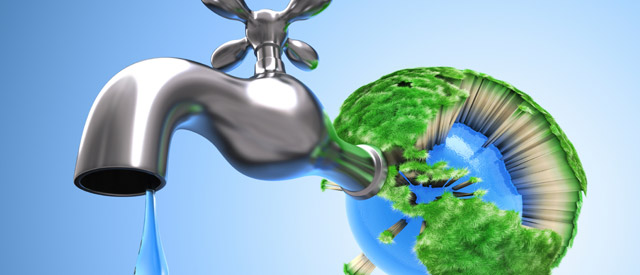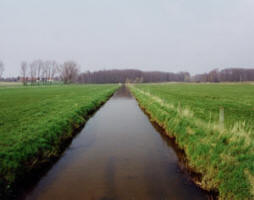 New OpenWater Wiki
New OpenWater Wiki
This is to invite all, and particularly those interested in analytical
methods related to water quality sampling, to visit the new OpenWater Wiki,
launched at the 8th Conference of the United Nations Spatial Data
Infrastructure Working Group in Bangkok. The Wiki is at http://www.ungiwg.org/openwater/
and is designed to share methodological information, tips and tricks on the
analysis of water quality samples. We hope that users of the OpenWater
Wiki will see this as a valuable forum to post information and questions
relating to existing, new and developing methods for the analysis of water
quality samples.
Many people working in water quality monitoring are familiar with
unpublished methods manuals maintained by individual laboratories. These
manuals are usually an invaluable resource to new members of the lab as they
often have specific tips about certain analytical methods, instrumentation,
reagent preparation and sourcing, amongst other materials, that are seldom
included in published methods descriptions.
Students in this field often find themselves pouring over such manuals
trying to piece together very basic analytical protocol details in order to
ensure that their samples are properly analysed and their results are
meaningful. OpenWater Wiki, seeks to fill this gap, by providing a
venue in which users from around the world can post their tips and tricks,
as well as questions about analytical methods.
In order to be a useful resource, the OpenWater Wiki needs the participation
of individuals actively involved in the analysis of water quality samples.
We have populated the site with basic methods descriptions and references
for standard water quality parameters but hope this is just a starting point
and that the site expands to become an active discussion forum about
existing and new analytical methods.
Please visit the moderated OpenWater Wiki http://www.ungiwg.org/openwater/,
to register as a user, and begin to use it as a resource for yourself and
colleagues involved in the analysis of water quality. Feel free to
refer other colleagues and students to this site. The more
participation and feedback that we get in the early stages of the OpenWater
Wiki, the more likely it will be that this site will become a success and a
useful resource for water quality practitioners worldwide.
We would also be very happy to receive any comments you have about the site
structure, or suggestions for further populating the site or encouraging
users to participate. GEMS/Water hopes to facilitate the transfer of
information regarding analytical methods in water quality, but the ultimate
success of the OpenWater Wiki depends on its users and the more input we
receive from potential users, the better we can make this site.
What does GEMS/Water do?
Since its establishment in 1978, UNEP’s Global Environmental Monitoring
System (GEMS) Water Programme has become the primary source for global
environmental water quality data. It is a multi-faceted water science centre
oriented towards knowledge development on inland quality issues throughout
the world. Major activities include monitoring, assessment and
capacity building.
The twin goals of the programme are to improve water quality monitoring and
assessment capabilities in participating countries, and to determine the
status and trends of regional and global water quality. These goals
are implemented through the GEMS/Water data bank, at www.gemstat.org,
including water quality data and information from more than 2,800 stations
in 100 countries, with over four million entries for lakes, reservoirs,
rivers and groundwater systems. By compiling a global database, GEMS/Water
adds value to country-level data by contributing to global and regional
water quality assessments.
Through its Quality Management System (QMS), UNEP’s GEMS/Water Programme
improves global water quality data by ensuring the comparability and
validity of analyses performed by laboratories worldwide, and by encouraging
and supporting data integrity at all levels.
The programme also carries out evaluations on a range of water quality
issues and methodologies. GEMS/Water data have been used by other
organizations, including the UN system and universities around the
world.
| Contact information |
Sabrina Barker / Dr. Richard D. Robarts, Director, GEMS/Water,
(email: sabrina.barker@gemswater.org ; richard.robarts@gemswater.org) Phone: +1-306-975-6047 fax: +1-306-975-5143 |
|---|---|
| News type | Inbrief |
| File link |
http://www.ungiwg.org/openwater/ |
| Source of information | UNEP’s Global Environmental Monitoring System (GEMS) Water Programme |
| Subject(s) | WATER QUALITY |
| Relation | http://www.emwis.net/topics/watmon |
| Geographical coverage | International |
| News date | 03/12/2007 |
| Working language(s) | ENGLISH |
 you are not logged in
you are not logged in





